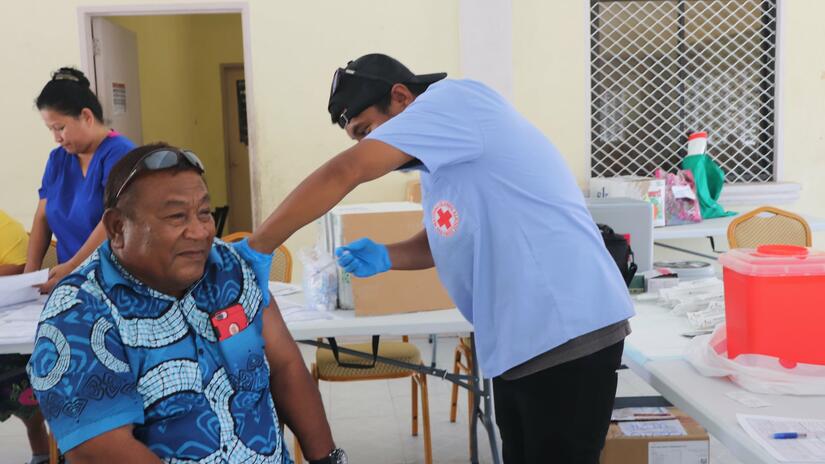A record surge of COVID-19 is threatening to overwhelm hospitals and fragile health systems in Pacific countries as the virus is running rampant in several countries for the first time.
Solomon Islands is experiencing its first-ever community outbreak, with more than 780 reported cases and its first five COVID-19 related deaths. Fiji is experiencing its third wave of COVID-19 infections, fuelled by the Omicron variant, while previously COVID-free countries Kiribati and Palau have also recorded community infections.
Katie Greenwood Pacific Head of Delegation, International Federation of Red Cross Red Crescent Societies (IFRC) said:
“For nearly two years most Pacific countries have done an incredible job holding COVID-19 at bay. These new outbreaks in small Pacific countries threaten health systems that are fragile and struggling to cope with needs of Pacific Islanders. Every effort must be made to prevent and contain the virus.
“While vaccination rates are remarkable in some Pacific countries, others are still far too low. It’s critical that vaccines doses reach the last mile to everyone across the Pacific, with trusted information about how vaccinations provide protection from severe illness and death.
“Building vaccine confidence is vital in the Pacific to make sure we reach a critical mass of people vaccinated in all countries. Although we know physical distancing and isolation within households can be very difficult in many places, with the huge surge of the Omicron variant around the world, these measures, along with wearing masks, are critical for slowing infection rates.”
Some countries in the Pacific have high vaccination rates, such as Palau, where 96 per cent of the population has received two doses and Fiji with 68 per cent. Other countries have much lower numbers of people vaccinated, such as Solomon Islands with 10 percent, Vanuatu with 22 percent, and Kiribati has just one in three people fully vaccinated.
Healthcare systems in many Pacific countries suffer from lack of resources and have limited equipment and infrastructure. This is compounded by challenging logistics and communities spread across remote islands, making the provision of healthcare difficult.
Pacific countries also face cyclones and floods in the coming weeks, while responding to other disasters such as the volcanic eruption and tsunami in Tonga.
“Many people around the Pacific are currently dealing with a bitter double whammy of severe disasters and the COVID-19 pandemic.
“In Fiji, Cyclone Cody has affected tens of thousands of people as the latest COVID surge skyrockets in the country. Providing support to people affected by these floods and the tsunami and volcanic eruption in Tonga is critical, though harder than ever.
“We must not swap one disaster for another. It is vital that every measure is taken to prevent the spread of COVID-19 in the Pacific,” said Greenwood.
SOURCE: IFRC/ PACNEWS














